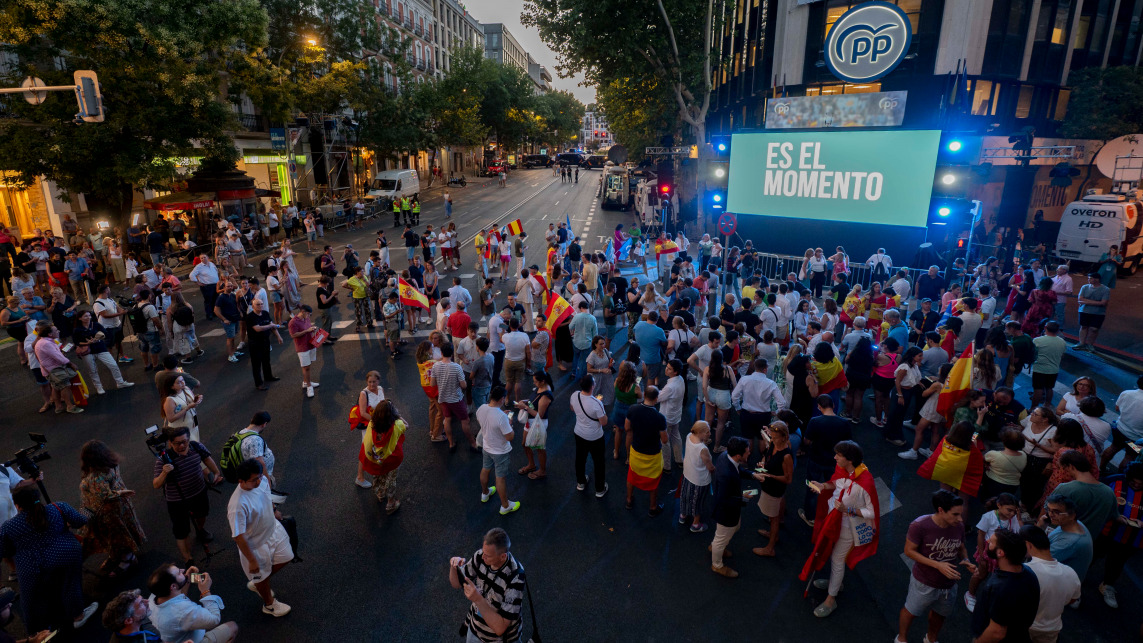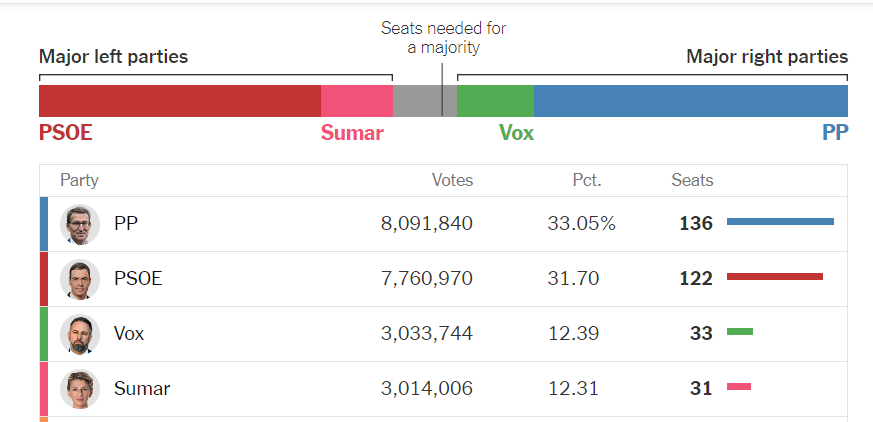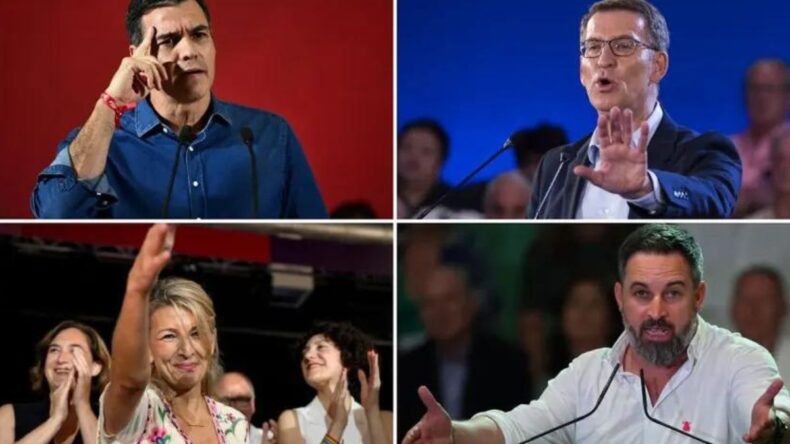In the snap elections on Monday (July 24), the opposition conservative party of Spain, led by Alberto Núñez Feijoo, secured the highest number of seats but fell short of obtaining a majority. Despite initial predictions of a clear victory for the conservative People’s Party (PP) over the Spanish Socialist Workers Party (PSOE), early results indicated a much tighter race.

After the total votes were counted, the PP obtained 136 seats, while the PSOE secured 122 seats. The far-right Vox party, a potential coalition partner of the conservatives, clinched 33 seats, and PSOE’s allies in the far-left Sumar alliance had 31 seats.
Although the centre-right PP garnered the most votes, they failed to reach the necessary threshold of 176 seats for an absolute majority, even with the support of Vox. Together, they only managed to secure 169 seats.
As a result, the election concluded with an inconclusive outcome, with both the left and right blocs closely competing to reach the crucial majority of 176 seats.
The aftermath of the elections has been marked by confusion as both sides claim success. PP’s leader, Alberto Núñez Feijóo, views the results as a victory for his party. However, despite this technical triumph, Feijóo faces the challenge of forming a government, raising the possibility of another election before the year’s end. Amidst this uncertainty, one notable observation is that Spain has, at least for the time being, bucked the trend of far-right parties gaining prominence in European governments.
Negotiations and Horse-Trading Ahead in Spain’s Hung Parliament
Following the snap elections in Spain on Monday, the opposition conservative People’s Party (PP) and the far-right Vox party fell short of securing the required majority, as did the Spanish Socialist Workers Party (PSOE) and the far-left Sumar alliance. With both blocs unable to reach the necessary number of seats for a majority, the country now faces a period of intense negotiations and political manoeuvring as rival parties strive to form a viable government.

Caption: Major left and right parties with their election result
The PP, led by Alberto Nunez Feijoo, now faces the challenging task of trying to govern with the support of both Vox and various regional parties. However, Vox’s controversial politics have caused other groups to draw a firm line, refusing to enter into a coalition with them.
As a new parliament is set to convene on August 17, Feijoo will be invited by King Felipe VI to secure the prime ministership. Notably, in a similar situation in 2015, PP leader Mariano Rajoy declined the king’s invitation. If Feijoo follows suit, the king will then extend the same request to Prime Minister Pedro Sanchez.
The absence of a legal deadline for the government formation process leaves room for uncertainty. However, if no candidate manages to secure a majority within two months of the first vote on the prime minister, the country will be compelled to hold fresh elections, exacerbating the political gridlock.
Spain’s future governance now hangs in the balance as the rival parties embark on delicate negotiations, seeking to find common ground and forge a path forward for the nation.
Sánchez and Feijoo React to Political Deadlock in Spain
On Sunday evening, Prime Minister Pedro Sanchez asserted that the Spanish right’s “reactionary” parties had not succeeded in the polls. He proclaimed, “We have secured more votes, more seats, and a larger share of the vote compared to four years ago,” while addressing the enthusiastic crowd gathered outside the PSOE’s headquarters in Madrid.
![PP’s leader, Alberto Nunez Feijoo [left side] and PM Pedro Sanchez[ right side].](https://asianatimes.com/wp-content/uploads/2023/10/v9R9QrIR-Untitled-design.jpg)
Caption: PP’s leader, Alberto Nunez Feijoo and PM Pedro Sanchez
He further criticized the “retrograde, reactionary block” for attempting to reverse the progress made in the past four years, emphasizing their failure in doing so.
In response to the election outcome, PP’s leader, Alberto Nunez Feijoo, expressed his gratitude to all those who contributed to the party’s victory and expressed his eagerness to form a government promptly.
Feijoo acknowledged the duty to prevent a period of uncertainty in the country and asserted, “As the candidate for the party that received the most votes, I consider it my responsibility to initiate dialogue as soon as possible and govern our country in line with the election results and the victory we have achieved.”












